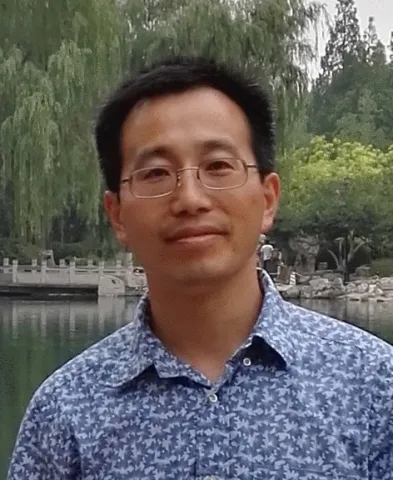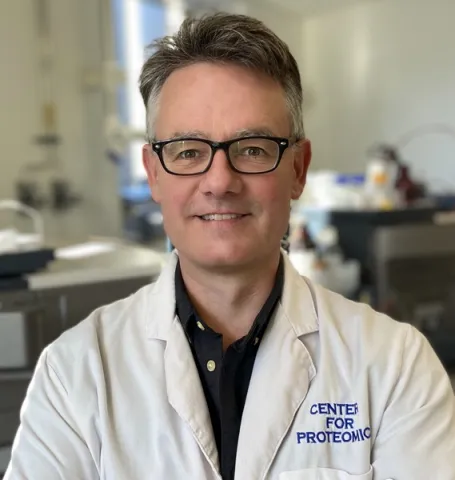Project overview
Idiopathic pulmonary fibrosis (IPF) is a life-threatening condition of the lungs where specialised lung cells known as 'fibroblasts' produce excessive amounts of scar tissue leading to thickening of the delicate gas exchange regions of the lung and marked impairment of gas exchange. IPF has an average life expectancy of around 3 years from time of diagnosis, an outcome worse than many cancers. Unfortunately, there is no cure for IPF so there is an urgent need for better treatments.
We have recently found that IPF lung tissue is stiffer than normal due to the formation of special 'cross-links', which join proteins together. Our studies demonstrated that these cross-links drive disease progression and so identifying how and why they are formed in the lung may identify new therapeutic targets. We think that the abnormal cross-links may be caused by activation of a protein called MYO9B, and that MYO9B activation could also have many other actions which also promote disease progression.
We will now investigate how this activation affects the behaviour of cells. To achieve this, a mouse model where MYO9B has been removed will be utilised, 3-dimensional disease models will be established, and advanced proteomic techniques that allow identification and quantification of many proteins at once will be used. Together this work will help us to understand what the role of MYO9B is in the lung, and how changes in MYO9B expression in IPF drive disease progression. Ultimately this will help us to develop better ways to treat IPF.
We have recently found that IPF lung tissue is stiffer than normal due to the formation of special 'cross-links', which join proteins together. Our studies demonstrated that these cross-links drive disease progression and so identifying how and why they are formed in the lung may identify new therapeutic targets. We think that the abnormal cross-links may be caused by activation of a protein called MYO9B, and that MYO9B activation could also have many other actions which also promote disease progression.
We will now investigate how this activation affects the behaviour of cells. To achieve this, a mouse model where MYO9B has been removed will be utilised, 3-dimensional disease models will be established, and advanced proteomic techniques that allow identification and quantification of many proteins at once will be used. Together this work will help us to understand what the role of MYO9B is in the lung, and how changes in MYO9B expression in IPF drive disease progression. Ultimately this will help us to develop better ways to treat IPF.



